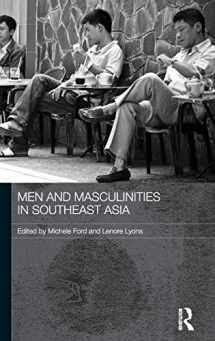
Men and Masculinities in Southeast Asia (Routledge Contemporary Southeast Asia Series)
Book details
Summary
Description
This book brings together extensive recent innovative research on the study of men and masculinities in Southeast Asia. Drawing on rich ethnographic fieldwork from Vietnam, Cambodia, Thailand, the Philippines, Singapore, Indonesia and Timor-Leste, the book examines both dominant and marginal constructions of heterosexual masculinity and the ways in which these are performed in different localized contexts in insular and mainland Southeast Asia. Through the presentation of detailed ethnographic studies on topics ranging from the professional practices of Filipino merchant seafarers to the sex lives of Thai migrant workers to the stand-over tactics of Indonesian gangsters, the authors in this collection challenge the idea of emerging globalizing forms of masculinities. Where existing studies of gender in Asia tend to concentrate on women, East Asia and gay men, this book fills a significant gap and demonstrates, overall, how gender, ethnicity, class, sexuality and nationality shape contemporary understandings of what it means to be a ‘man’ in contemporary Southeast Asia.


We would LOVE it if you could help us and other readers by reviewing the book
Book review



